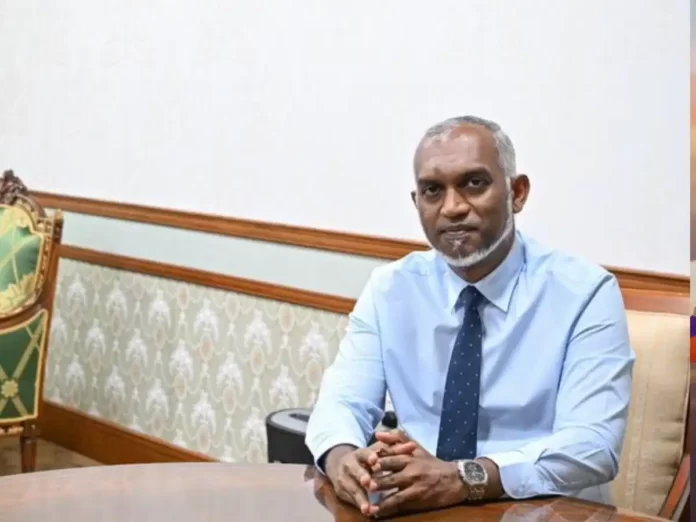Maldives, the picturesque island nation in the Indian Ocean, is facing a significant economic challenge as it grapples with a mounting debt burden. Despite concerns about its financial stability, the Maldives government maintains that the country is not bankrupt, but rather facing financial strain due to its debt obligations.
The Maldivian economy relies heavily on tourism, which accounts for a significant portion of its GDP. However, the COVID-19 pandemic dealt a severe blow to the tourism industry, leading to a sharp decline in visitor numbers and revenue. As a result, the Maldives government was forced to take on additional debt to support its economy and meet its financial obligations.
According to official data, Maldives’ total debt reached approximately $5 billion in 2021, equivalent to around 65% of its GDP. This debt burden has raised concerns among international lenders and investors about the country’s ability to repay its loans and maintain financial stability.
Despite these challenges, the Maldives government remains optimistic about its economic prospects. In a recent statement, Maldivian Finance Minister Ibrahim Ameer acknowledged the country’s debt situation but emphasized that the government was taking steps to address it responsibly.
One of the key measures implemented by the Maldives government is a series of fiscal reforms aimed at reducing government spending and increasing revenue. These reforms include measures to improve tax collection, streamline public expenditure, and attract foreign investment to diversify the economy.
Maldives Government In Concern
Additionally, the Maldives government has sought assistance from international financial institutions and donor countries to alleviate its debt burden and support economic recovery efforts. In December 2021, the Maldives secured a $250 million loan from the Asian Development Bank (ADB) to finance its budget and address urgent fiscal needs.
Despite these efforts, challenges remain for the Maldives as it navigates its debt crisis and seeks to restore economic stability. The country’s heavy reliance on tourism leaves it vulnerable to external shocks, such as global pandemics and natural disasters, which can have a significant impact on its economy.
Furthermore, the Maldives’ debt situation has raised concerns about its long-term financial sustainability and ability to meet its development goals, including poverty reduction, infrastructure investment, and environmental conservation.
In addition to fiscal reforms, the Maldives government is also exploring opportunities to diversify its economy beyond tourism. Efforts are underway to promote sectors such as fisheries, agriculture, and renewable energy, which have the potential to contribute to economic growth and reduce dependency on tourism revenue.
Furthermore, the Maldives is actively seeking foreign investment to support infrastructure development and spur economic activity. Projects such as the expansion of transportation networks, the construction of new resorts and hotels, and the development of renewable energy infrastructure are being pursued to attract investment and create employment opportunities for the local population.
Despite these initiatives, challenges persist for the Maldives in managing its debt and revitalizing its economy. The ongoing COVID-19 pandemic continues to pose uncertainties for the tourism industry, hindering the country’s recovery efforts. Additionally, climate change and environmental degradation present long-term risks for the Maldives, threatening its natural resources and infrastructure.
To address these challenges, the Maldives government is working closely with international partners, including the United Nations and regional organizations, to develop sustainable solutions and build resilience against external shocks. Initiatives such as climate adaptation projects, marine conservation efforts, and disaster preparedness programs are being implemented to safeguard the Maldives’ future.
Ultimately, the path to economic recovery and stability for the Maldives requires a combination of prudent financial management, strategic investment, and sustainable development policies. By leveraging its natural assets, fostering diversification, and fostering partnerships with the international community, the Maldives aims to overcome its debt challenges and chart a course towards a prosperous and resilient future.

